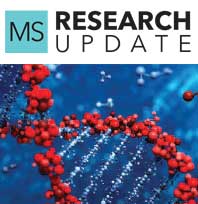Ponesimod

In this Update
FDA-Approved Medications: Recently Approved
Experimental Medications: S1P Receptor Modulators
Company: Janssen/Johnson & Johnson
- Oral medication being studied at 20 mg/day
- Being studied in RMS
Previous: Temelimab | Next: Evobrutinib
Janssen/Johnson & Johnson has applied to the United States Food and Drug Administration (FDA) and European Medicines Agency (EMA) for approval of its selective sphingosine-1-phosphate receptor 1 (S1P1) immunomodulator ponesimod for treating adults with relapsing forms of MS (RMS).
The applications for approval are supported by data from a multicenter, double-blind, Phase III clinical trial (OPTIMUM), in which ponesimod outperformed another disease-modifying therapy, Aubagio, in a head-to-head comparison among 1,133 adults with relapsing MS.10 Participants received ponesimod 20 mg or Aubagio 14 mg once daily for approximately two years. Ponesimod was started at 2 mg daily, then increased gradually to 20 mg daily to prevent effects on heart rate that can result with S1P receptor modulators.9
After two years, the annualized relapse rate was 30% lower in the ponesimod group (0.2) compared with individuals who received Aubagio (0.29). Also, the number of combined unique active lesions (gadolinium-enhancing T1 and new or enlarging T2 lesions) detected by magnetic resonance imaging was 56% lower in the ponesimod group, compared with those receiving Aubagio.10
Additionally, scores on the Fatigue Symptoms and Impacts Questionnaire – Relapsing Multiple Sclerosis (FSIQ-RMS) – a 20-item patient survey that measures MS-related fatigue symptoms and their impact on quality of life – were a mean of 3.57 points lower in the ponesimod group.10 This finding suggests that ponesimod may alleviate fatigue, an often-debilitating symptom that affects roughly 80% of people with MS.
Ponesimod also displayed the same level of tolerability shown in previous clinical trials. The most common treatment-related adverse effects were colds, headache, upper respiratory tract infections, and an increase in alanine amino transferase, an enzyme that at elevated levels could signal liver dysfunction.10
